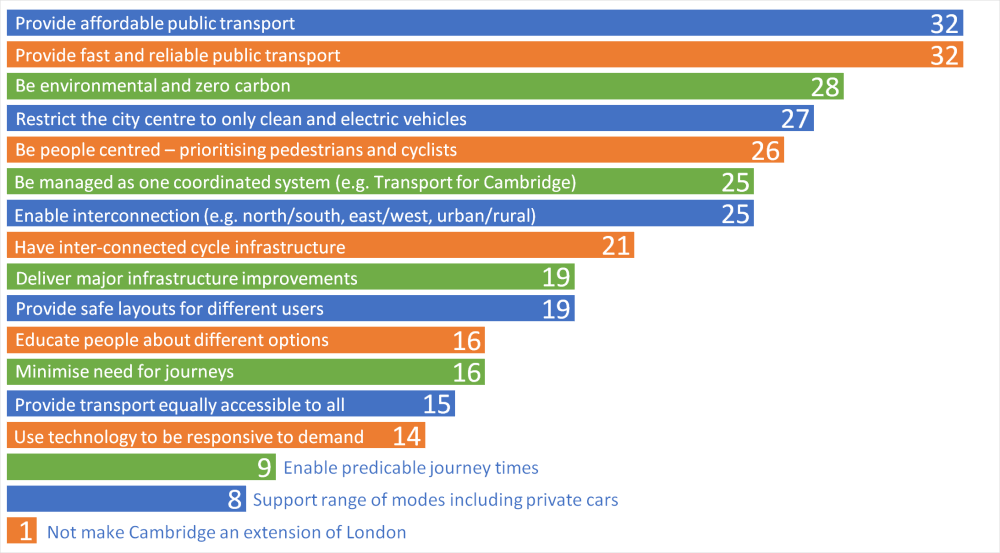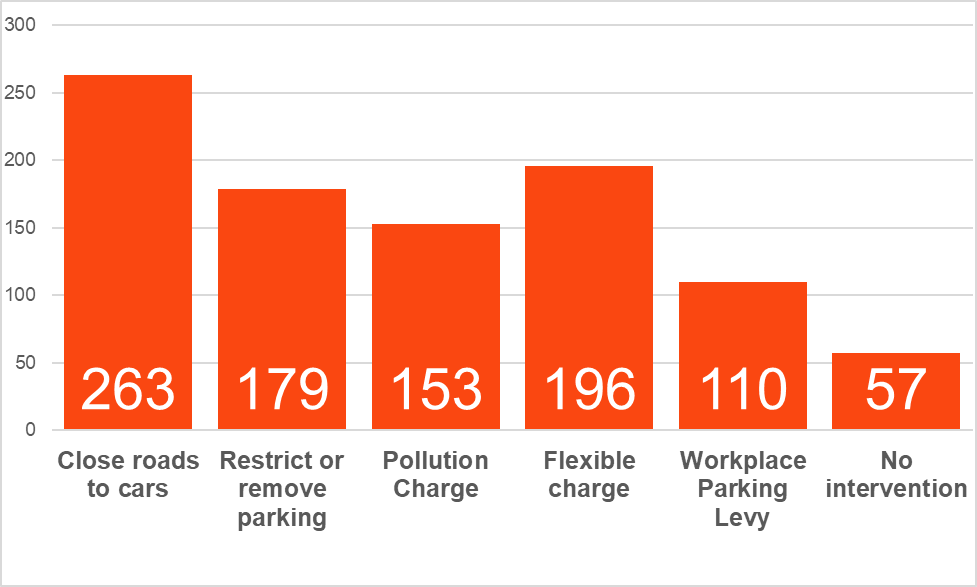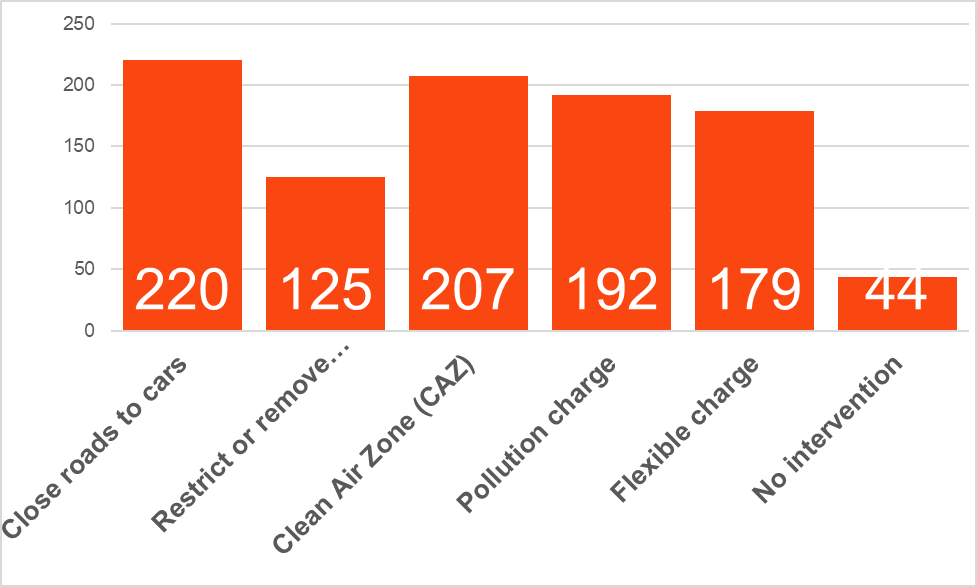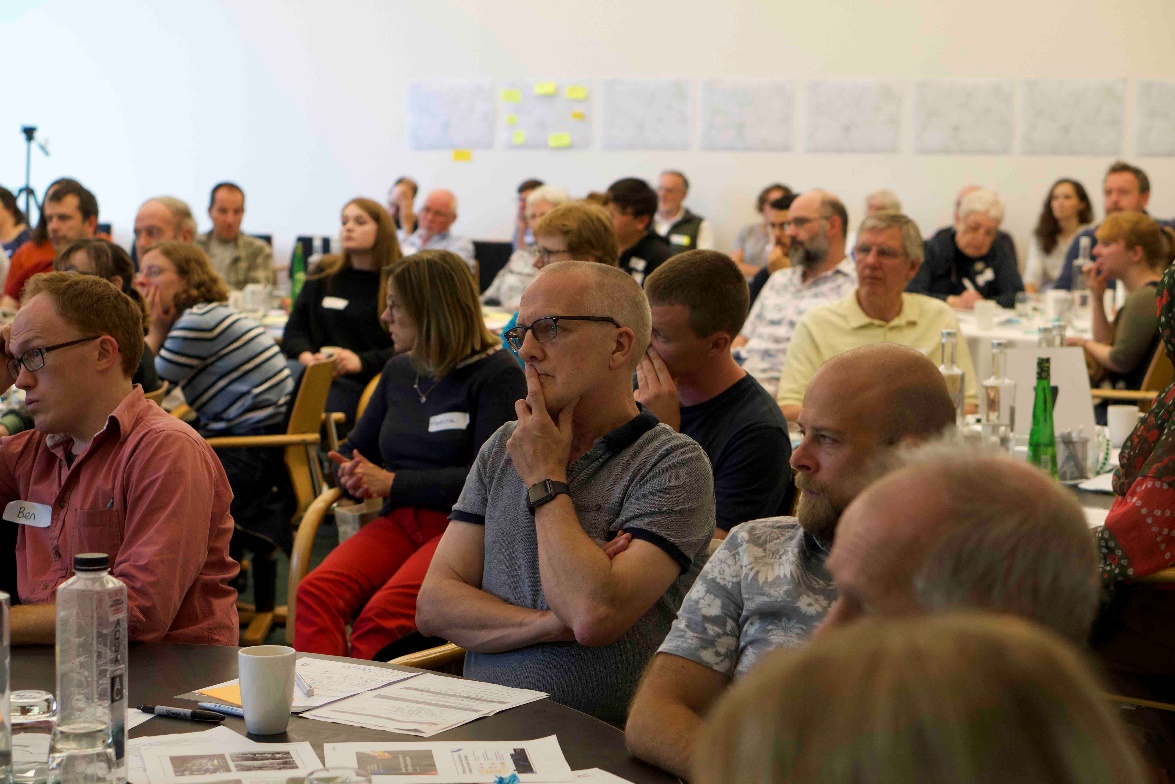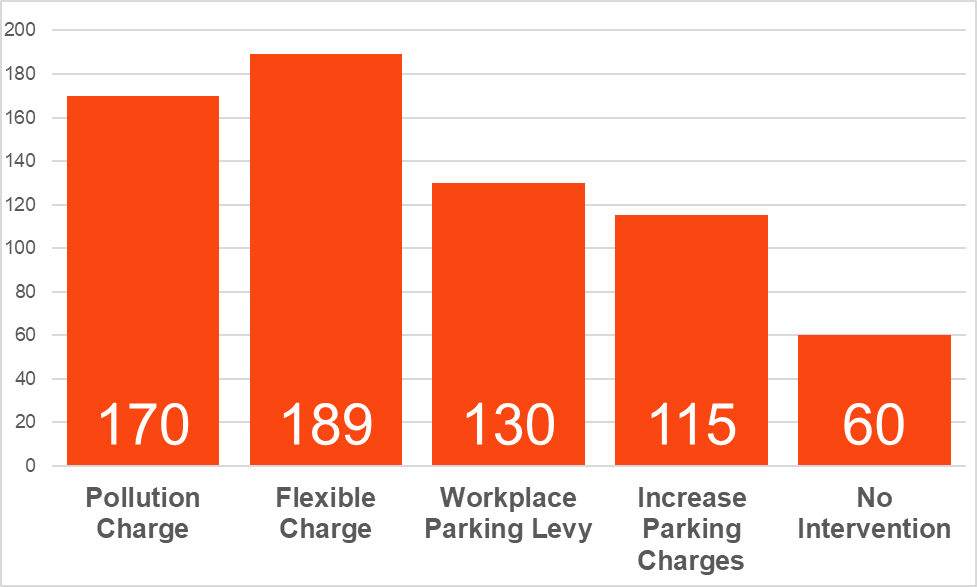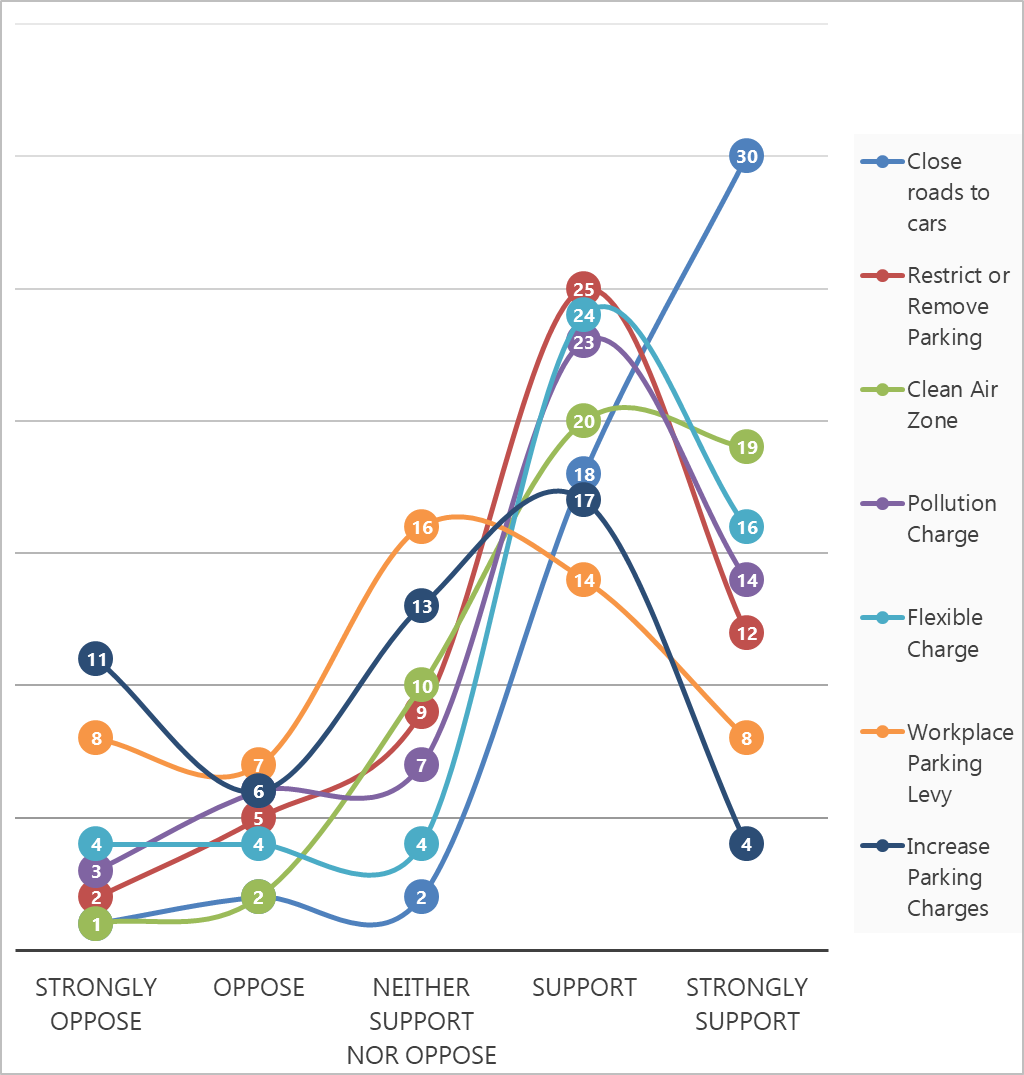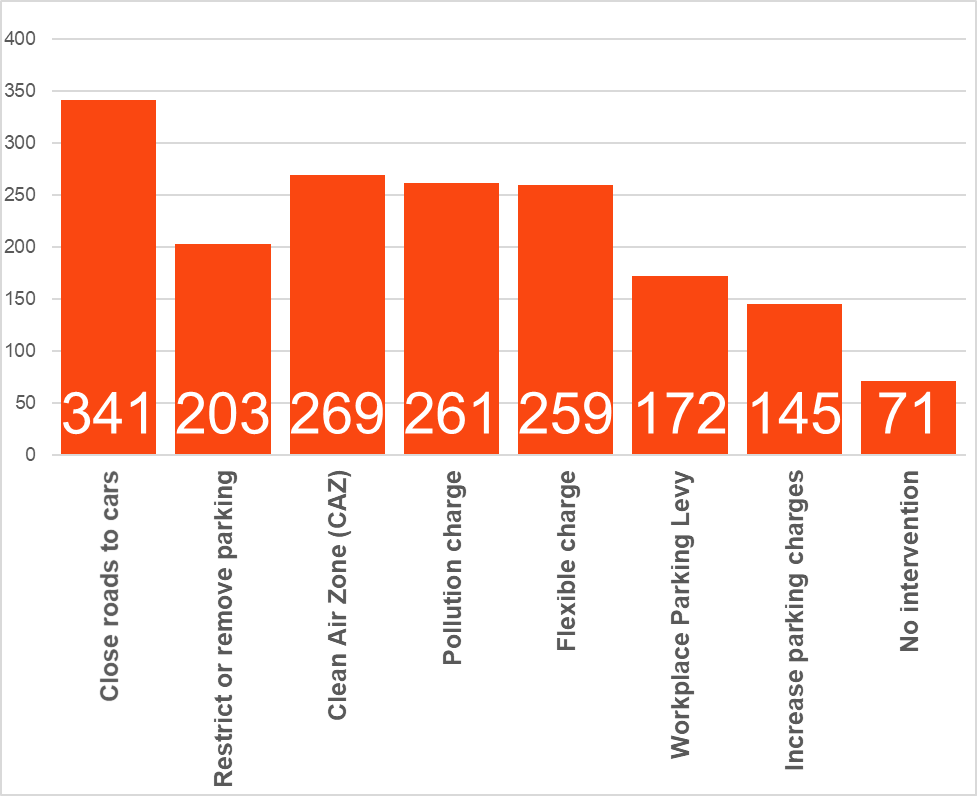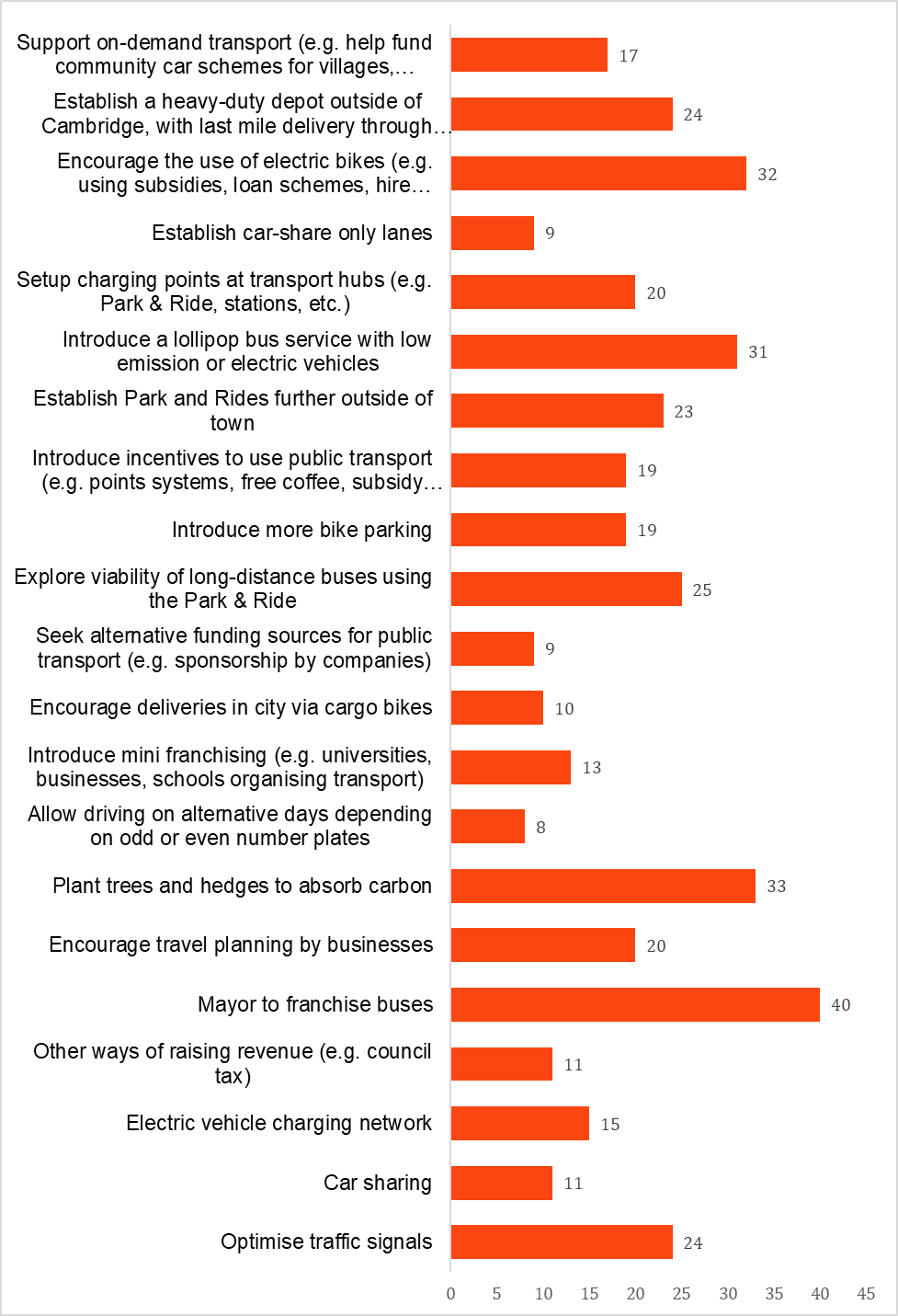Introduction
Update: 14th October – A couple of errors were detected in the formula for the calculation of votes 1 and 4 of the enabling measures that was used in the creation of this report. An error in the chart for vote 4 was detected. They have been corrected in this revised version.
The Greater Cambridge Citizens' Assembly on congestion, air quality and public transport brought together 53 randomly selected residents from Greater Cambridge and the wider travel to work area for two weekends during September and October 2019.
The citizens' assembly was set the task to develop recommendations to the Greater Cambridge Partnership in response to the question:
How do we reduce congestion, improve air quality and provide better public transport in Greater Cambridge?
Across two weekends, the citizens' assembly heard a range of evidence relating to the challenges of congestion, air quality and public transport – this included learning, exploring and discussing:
- The situation in Greater Cambridge now and projections for the future;
- The impacts of congestion, air quality and public transport on our health; our environment; and our lives;
- Visions and approaches locally and from further afield on different ways to tackle the problem; and
- The range of measures that could be used to address the situation.
This report outlines the high-level conclusions from the citizens' assembly, principally based on the results of a number of votes that took place during the two weekends. In addition to these votes, citizens' assembly members developed a number of other outputs, including detailed justifications for their decisions, considerations for how measures should be implemented and additional recommendations for the Greater Cambridge Partnership.
This report should, therefore, only be taken as a partial representation of the citizens' assembly's recommendations. A full report will be published in November with all of the outputs of the citizens' assembly.
High-level Conclusions
The Citizens' Assembly Vision
At the first weekend, assembly members discussed impacts that they wanted to avoid and then developed and prioritised a list of outcomes they wanted to achieve in Greater Cambridge by 2030.
Enabling Measures
During the second weekend, assembly members considered different demand management measures and their potential to meet the vision and address the question of the assembly. The citizens' assembly took a number of votes to reach conclusions on these measures.
Votes 1,2,3 and 5 were conducted as preference votes, with the assembly members asked to prioritise the options. Assembly members could select an option not to make any intervention on those points, or not to rank all of the options. These votes were counted using a borda count, with first preferences given maximum points, and descending points for preferences below that.
Vote 4, on the other hand, captured the degree to which assembly members supported or opposed the measures that were being considered.
Vote 1: What would be your preferred way of reducing congestion and creating road space for improved public and active transport in Greater Cambridge?
The first vote considered measures that could make a substantial impact on reducing congestion and improving public and active transport. The citizens' assembly considered five measures, as well as the option of not making an intervention. Across those options, closing roads to cars came out on top with 263 points.
Vote 2: What would be your preferred way of improving air quality in Greater Cambridge?
The second vote considered measures that could make a substantial impact on improving air quality. The citizens' assembly considered five measures, as well as the option of not making an intervention. Across those options, closing roads to cars again came out on top with 220 points.
Vote 3: What would be your preferred way of raising funds for improved public and active transport in Greater Cambridge and across the wider area?
The third vote considered measures that could make a substantial impact on raising funds for improved public and active transport. The citizens' assembly considered four measures this time, as well as the option of not making an intervention. Across those options, a flexible charge came out on top with 189 points.
Vote 4: To what extent do you support or oppose the following measures being part of the solution to improving congestion, air quality and public transport in Greater Cambridge and across the wider area?
The fourth vote asked assembly members to state the extent to which they supported or opposed all of the measures. Closing roads to cars received the greatest amount of support, with 30 assembly members giving it strong support. Other options of a clean air zone, pollution charge, flexible charge and restricting or removing parking also received a clear majority of support. Views on the workplace parking levy and increasing parking charges were, however, much more mixed, with increased parking charges being the measure most strongly opposed by 11 members.
Vote 5: What would be your preferred ways, from the following demand management measures, to improve congestion, air quality and public transport in Greater Cambridge and across the wider area?
The fifth vote asked assembly members to prioritise the measures across all of the outcomes of reducing congestion, improving air quality and providing better public transport. They therefore considered all seven measures, as well as the option of not making an intervention. Across the options, closing roads to cars came out on top with 341 points. This was followed by the three road charging options, with Clean Air Zone (269), pollution charge (261) and flexible charge (259) all on similar points.
Supporting Measures
Assembly members developed and prioritised additional measures that they thought should be part of the mix in helping address congestion, improve air quality and provide for better public transport. The following were prioritised by the Assembly Members:
Background Note
The Greater Cambridge Partnership was awarded funds and support from the UK Government's Innovation in Democracy Programme to hold the Citizens' Assembly. The Innovation in Democracy Programme is being managed by the Department for Culture, Media and Sport (DCMS) and the Ministry for Housing, Communities and Local Government (MHCLG).
Involve is a UK wide public participation charity. Involve ran the Citizens' Assembly – facilitating and designing the process by which the Assembly members learnt, considered and came to recommendations about the topic.
We worked with the Sortition Foundation who promote the use of stratified, random selection in decision making to recruit the people to take part in the Assembly and ensure the Assembly was broadly representative of the Greater Cambridge and wider travel to work community.
More information can be found at: https://www.involve.org.uk/our-work/our-projects/practice/how-do-we-reduce-congestion-improve-air-quality-provide-better-public
